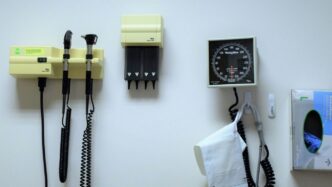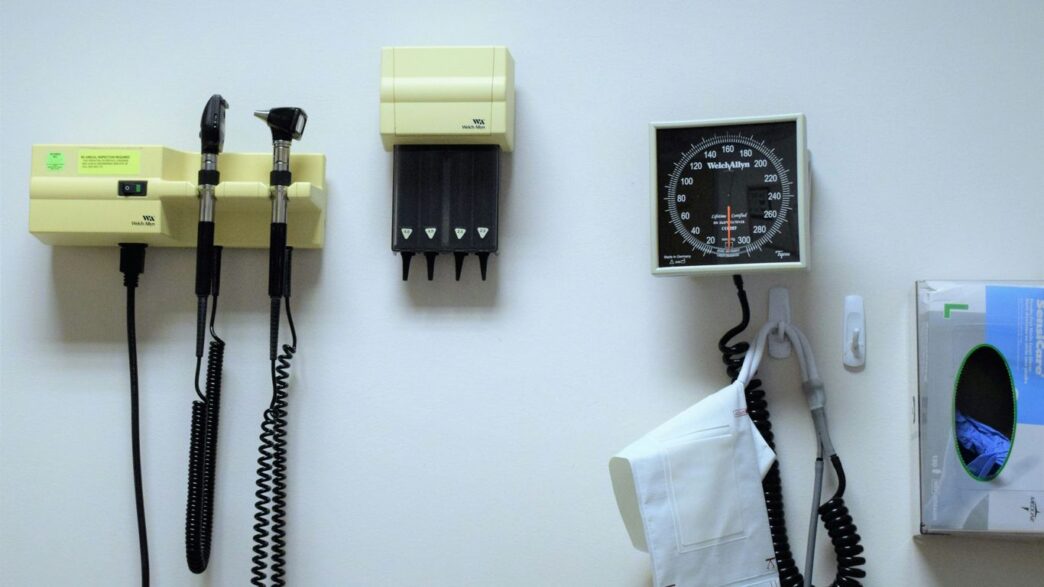In today’s healthcare world, technology is everywhere. It helps with patient care, running the place smoothly, and keeping things safe. But managing all that tech can be a headache. That’s where managed service providers for healthcare come in. Think of them as your IT helpers, taking care of the tech stuff so you can focus on what really matters: your patients. This guide is here to break down what these providers do, why they’re a good idea, and how to pick the right one for your needs.
Key Takeaways
- Managed service providers for healthcare offer outsourced IT help, covering things like security, network management, and keeping systems running. They let your staff focus more on patient care.
- Partnering with a managed service provider can make your operations run better, keep your patient data secure and compliant with rules, and give you access to new tech solutions.
- When picking a provider, check if they know healthcare specifically, what services they actually offer, how they handle problems, and if they can grow with you.
- Good communication, clear goals, and checking how well things are going are key to making a managed services partnership work.
- Using managed services can help your healthcare organization grow by improving patient care, expanding services, and making your digital systems work better.
Understanding Managed Services Providers for Healthcare
Defining Healthcare IT Managed Services
So, what exactly are we talking about when we say "managed services" in the healthcare world? Basically, it’s like hiring an expert team from outside your organization to handle some or all of your IT tasks. Think of it as outsourcing your technology needs. This could cover anything from keeping your computer networks running smoothly, managing your email systems, providing help desk support when things go wrong, or even looking after your data security. It’s about letting specialists take care of the tech so your healthcare team can focus on what they do best: patient care. These services are designed to keep your operations humming along without you having to worry about the nitty-gritty of IT.
The Evolving Role of Technology in Healthcare
It’s no secret that technology has changed healthcare in a big way. We’ve got electronic health records (EHRs), telehealth appointments, fancy diagnostic tools, and all sorts of digital platforms to manage patient information. This digital shift means healthcare organizations are dealing with more technology than ever before. More tools, more applications, more patient-facing platforms, and a whole lot more data. Plus, there are always new rules and regulations to keep up with, like HIPAA. It’s a lot to juggle, especially when budgets are tight and staffing can be a challenge. This growing reliance on tech means that keeping everything running smoothly and securely is a huge job. It’s not just about having the technology; it’s about managing it effectively to actually improve patient care and make things work better for everyone involved. This is where managed services really come into play, offering a way to handle these complex IT demands.
Why Partner with Managed Service Providers?
Thinking about bringing in a managed service provider (MSP) might seem like a big step, but there are some solid reasons why healthcare organizations are doing it. Imagine your hospital needs to build a new wing. Would you ask your maintenance crew to handle the construction? Probably not. They’re great at keeping things running, but building a whole new section is a different ballgame. It’s similar with IT. Your internal IT folks are likely swamped with daily tasks. Handing over routine IT management to an MSP frees them up to work on bigger, more strategic projects that can actually move your organization forward. It’s about getting specialized help for specific tasks, allowing your internal team to focus on innovation and growth. Plus, MSPs often have access to advanced tools and knowledge that can help you stay compliant with regulations and improve patient experiences. It’s a way to get expert support without having to hire a whole new department yourself. You can find out more about what managed services involve by looking at this guide.
Key Benefits of Healthcare Managed Services
So, why should a healthcare organization even consider bringing in outside help for their IT needs? It’s not just about offloading tasks; it’s about fundamentally improving how things run and, ultimately, how patients are cared for. Think of it like this: you wouldn’t expect your top surgeons to also be IT wizards, right? Managed services allow everyone to focus on what they do best.
Streamlining Operational Efficiency
Let’s be honest, healthcare operations can get bogged down by routine IT tasks. When your internal IT team is constantly putting out fires or managing basic system upkeep, they don’t have much time left for the big picture stuff. Outsourcing these day-to-day jobs to a managed service provider (MSP) frees them up. They can then focus on projects that actually move the needle, like improving system adoption or exploring new tech that could help patients. This means things like network management, device upkeep, and running a 24/7 help desk are handled by pros, letting your own staff tackle strategic initiatives. It’s about making sure the engine runs smoothly so the rest of the organization can focus on its core mission.
Enhancing Data Security and Compliance
In healthcare, data security isn’t just a good idea; it’s a legal requirement and a matter of patient trust. Breaches are a huge concern, and navigating regulations like HIPAA can feel like a maze. MSPs specializing in healthcare IT bring a deep understanding of these challenges. They implement robust security measures, from advanced threat detection to data encryption, helping to keep sensitive patient information safe. Many organizations report a significant improvement in their security posture after partnering with an MSP. This proactive approach not only avoids hefty fines but also builds confidence with patients and partners.
Accessing Innovative Healthcare Solutions
The world of healthcare technology is always changing. Things like telehealth, AI for diagnostics, and remote patient monitoring are becoming more common. For many healthcare organizations, keeping up with these innovations and integrating them can be a huge hurdle. Partnering with an MSP gives you a direct line to these new technologies. They can help you implement and manage solutions that improve patient engagement and even expand the services you offer, reaching more people without necessarily needing to build more physical locations. It’s a way to stay competitive and offer better care.
Achieving Cost Efficiencies
Running a full-fledged IT department can be incredibly expensive. You’ve got salaries, training, hardware, software licenses – the costs add up fast. Managed services often provide a more predictable cost structure. Instead of unpredictable capital expenses, you get a set monthly fee. This allows for better budgeting and can often lead to significant savings compared to managing everything in-house. Research suggests that organizations using managed IT services can see substantial reductions in their IT spending, freeing up those funds to be reinvested directly into patient care initiatives or other critical areas of the hospital. It’s about getting more bang for your buck and making sure resources are used wisely. Managed IT services can be a smart financial move.
Choosing the Right Managed Service Provider

Picking the right managed service provider (MSP) for your healthcare organization isn’t like picking out a new coffee maker. It’s a big decision that can really affect how your IT runs, and honestly, how smoothly your whole practice operates. You want someone who gets healthcare, not just computers.
Evaluating Expertise and Specialization
First off, you need to figure out what you actually need. Are you struggling with your electronic health record (EHR) system? Maybe it’s cybersecurity that keeps you up at night, or perhaps you’re looking to get more out of your data. Different MSPs are good at different things. Some might be wizards with specific EHR platforms like Epic or Cerner, while others focus more on network security or cloud services.
Think about it like this:
- What are your biggest IT headaches right now? Be specific. Is it slow systems, data breaches, or just keeping up with updates?
- What kind of support do you need? Do you want someone to handle everything, or just fill in the gaps where your internal team is stretched thin?
- Do they understand healthcare rules? HIPAA compliance isn’t a suggestion; it’s the law. Your MSP needs to know this stuff inside and out.
It’s really important to find a provider that has a proven track record in the healthcare industry. Ask for references, look at case studies, and see if they have certifications that show they know their stuff. A provider who has helped other clinics or hospitals with similar challenges will likely be a better fit.
Assessing Service Offerings and Scalability
Once you know what you need, look at what the MSP actually offers. Do they have a clear list of services? Does it match your list of needs? Don’t just look at today; think about tomorrow too. Your practice might grow, or technology might change. Can the MSP grow with you?
Here’s a quick checklist:
- Core Services: Do they cover the basics like network monitoring, help desk support, and data backup?
- Specialized Services: Do they offer things like cybersecurity assessments, cloud migration, or telehealth support if that’s what you’re after?
- Scalability: Can they easily add or remove services as your needs change? What happens if you double your patient load next year?
It’s also worth asking about their approach. Do they offer a standard package, or can they create a custom plan for you? Many healthcare organizations find that a one-size-fits-all approach just doesn’t cut it anymore. You want a partner who can tailor solutions to your specific setup.
Understanding Reputation and Customer Support
How do you know if an MSP is any good? Look at what other people say. Check online reviews, ask for testimonials, and see if they have any industry awards or recognition. A good reputation is usually earned.
Beyond reputation, think about how they handle problems. When something goes wrong – and it will – how quickly do they respond? What’s their process for fixing things?
- Response Times: What are their guaranteed response times for different types of issues?
- Communication: How will they keep you updated? Will you have a dedicated point of contact?
- Problem Resolution: What’s their track record for actually fixing problems effectively?
A provider that communicates clearly and is easy to work with can make all the difference. You’ll be working closely with them, so a good working relationship is key.
Defining Clear Goals and Expectations
Before you even start talking to MSPs, sit down and write down what you want to achieve. What does success look like for you? Is it reducing IT downtime by a certain percentage? Improving patient data security? Making sure your systems are always up-to-date?
Be clear about:
- Your IT problems: What are you trying to solve?
- Your business goals: How will better IT help your practice succeed?
- How you’ll measure success: What numbers or metrics will you use to know if the MSP is doing a good job?
Having these goals clearly defined will help you find the right MSP and will also give you and the provider a roadmap to follow. It sets the stage for a productive partnership from day one.
Driving Growth with Managed Services

Managed services aren’t just about keeping the lights on for your IT systems; they can actually be a big push forward for your healthcare organization. Think of it like this: you wouldn’t ask your star surgeon to also manage the hospital’s entire IT infrastructure, right? It’s the same idea. By handing over the day-to-day IT operations to experts, your internal teams can get back to what they do best – patient care and strategic planning.
Expanding Service Offerings Through Technology
MSPs can help you bring in new ways to care for patients. They have the know-how to implement things like telehealth platforms, which let you see patients remotely. This is a game-changer for people in rural areas or those who have trouble getting to appointments. They can also help set up remote patient monitoring systems, so you can keep an eye on patients with chronic conditions from afar. This means you can offer more services without needing more physical space or staff on-site for every single interaction. It’s about reaching more people and offering care in ways that are convenient for them.
Improving Patient Engagement and Outcomes
When your IT runs smoothly, patients notice. Think about easier online appointment scheduling, secure patient portals for accessing records, or even apps that help manage medications. These aren’t just tech bells and whistles; they make a real difference in how patients interact with your organization. When patients can easily communicate with their care team, access their health information, and get reminders, they’re more likely to stick to their treatment plans. This leads to better health results and happier patients. Plus, with better data analytics from your MSP, you can spot trends in patient populations and tailor care more effectively.
Facilitating Digital Transformation
Digital transformation in healthcare isn’t just a buzzword; it’s about making your entire organization work smarter and more efficiently using technology. An MSP can be your partner in this. They can help you move to the cloud, integrate different software systems that don’t talk to each other now, and make sure your data is secure and accessible. This makes everything from billing to clinical record-keeping much smoother. It also means your staff spends less time wrestling with clunky systems and more time focused on patient needs. Ultimately, a good MSP helps you build a more agile, modern healthcare system ready for whatever comes next.
Best Practices for Managed Services Success
So, you’ve picked out a managed service provider (MSP) for your healthcare setup. That’s a big step! But just signing the contract isn’t the finish line. To really get the most out of this partnership, there are a few things you’ll want to keep in mind. Think of it like getting a new tool – you need to know how to use it properly to get the job done right.
Establishing Open Communication Channels
This is probably the most important bit. You and your MSP need to be talking to each other, like, a lot. It’s not a ‘set it and forget it’ kind of deal. Regular check-ins are key. Maybe a weekly call to go over what’s happening, what’s coming up, and if any little hiccups have popped up. This keeps everyone on the same page and helps catch problems before they turn into big headaches. Transparency is the name of the game here. It’s also good to have a way for your team to give feedback. Did something work well? Was something a bit clunky? Letting your MSP know helps them tweak their services to be even better for you.
Monitoring Performance and KPIs
How do you know if your MSP is actually doing a good job? You measure it! You need to agree on what success looks like. These are often called Key Performance Indicators, or KPIs. For example, you might track how quickly IT issues get resolved, or how often your systems are up and running without any downtime.
Here’s a quick look at some common KPIs:
- Ticket Resolution Time: How long does it take to fix a reported problem?
- System Uptime: What percentage of the time are your critical systems available?
- Security Incident Rate: How many security breaches or attempted breaches occur?
- User Satisfaction: How happy are your staff with the IT support they receive?
Looking at these numbers regularly helps you see if the MSP is hitting the mark. If they’re not, you can have a conversation about why and what needs to change.
Investing in Staff Training and Adaptation
When you bring in an MSP, things might change. New software, new ways of doing things. Your own staff needs to be comfortable with these changes. So, it’s really smart to invest in training. This isn’t just about teaching them how to click the right buttons; it’s about helping them understand why things are being done a certain way and how it benefits them and the patients. When your team feels confident and capable, they’ll work better with the MSP, and everything will run more smoothly. It also helps build a sense of teamwork, rather than feeling like the MSP is an outside force.
Staying Informed on Industry Trends
The world of healthcare IT moves fast. Like, really fast. New technologies pop up, regulations change, and patient expectations shift. Your MSP should be on top of this, but it’s also good for you to have a general awareness. This helps you ask the right questions and understand the advice your MSP gives you. Are there new security threats you should be worried about? Is there a new system that could really improve patient care? Being informed means you can have more strategic conversations with your MSP and make sure your IT setup is always moving forward, not just treading water.
Wrapping It Up
So, we’ve talked a lot about how managed IT services can really help out healthcare places. It’s not just about having someone else handle your computers; it’s about making things run smoother, keeping patient info safe, and staying on the right side of all those rules. Think of it like getting a specialist to help with a tricky part of your job so you can focus on what you do best – taking care of people. As technology keeps changing, and it changes fast, having a good partner for your IT needs is going to be more important than ever. Picking the right provider and working with them smartly can make a big difference in how well your organization does and, ultimately, the kind of care you can give.
Frequently Asked Questions
What exactly are managed IT services for healthcare?
Think of managed IT services as hiring a special team to handle all your clinic’s computer and technology needs. This team takes care of things like keeping your computer systems running smoothly, protecting patient information, and making sure all your software works correctly. They do this so your doctors and nurses can focus on taking care of patients.
Why should a hospital or clinic use a managed service provider (MSP)?
Using an MSP is like having expert helpers for your technology. They have the knowledge to keep your systems safe and up-to-date, which can be hard for a hospital to do on its own. This lets your own staff concentrate on patient care instead of worrying about computer problems. Plus, it can often save money compared to hiring a big IT team yourself.
How can MSPs help keep patient data safe and follow the rules?
MSPs are really good at protecting sensitive patient information. They know all the rules, like HIPAA, and set up strong security measures to prevent data from getting stolen or lost. They constantly watch for threats and make sure your systems meet all the legal requirements, which helps build trust with patients.
Can working with an MSP help a healthcare business grow?
Yes, absolutely! MSPs can help your practice grow by bringing in new, helpful technologies like telehealth or better ways to connect with patients. They can also help you handle more patients or open new locations without your IT getting overwhelmed. It’s like having a tech partner that helps you expand your services.
What’s the most important thing to look for when picking an MSP?
The best thing to look for is an MSP that really understands healthcare. They should have a good history of working with other clinics or hospitals and know about all the specific rules and needs in medicine. Also, make sure they offer all the services you need and have good customer support available when you need it.
How can a healthcare organization make sure a partnership with an MSP works well?
Good communication is key! You need to talk openly with your MSP about what you need and how things are going. It’s also important to set clear goals, like improving system speed or security, and then check regularly to see if the MSP is meeting those goals. Training your staff to use new tech is important too.














